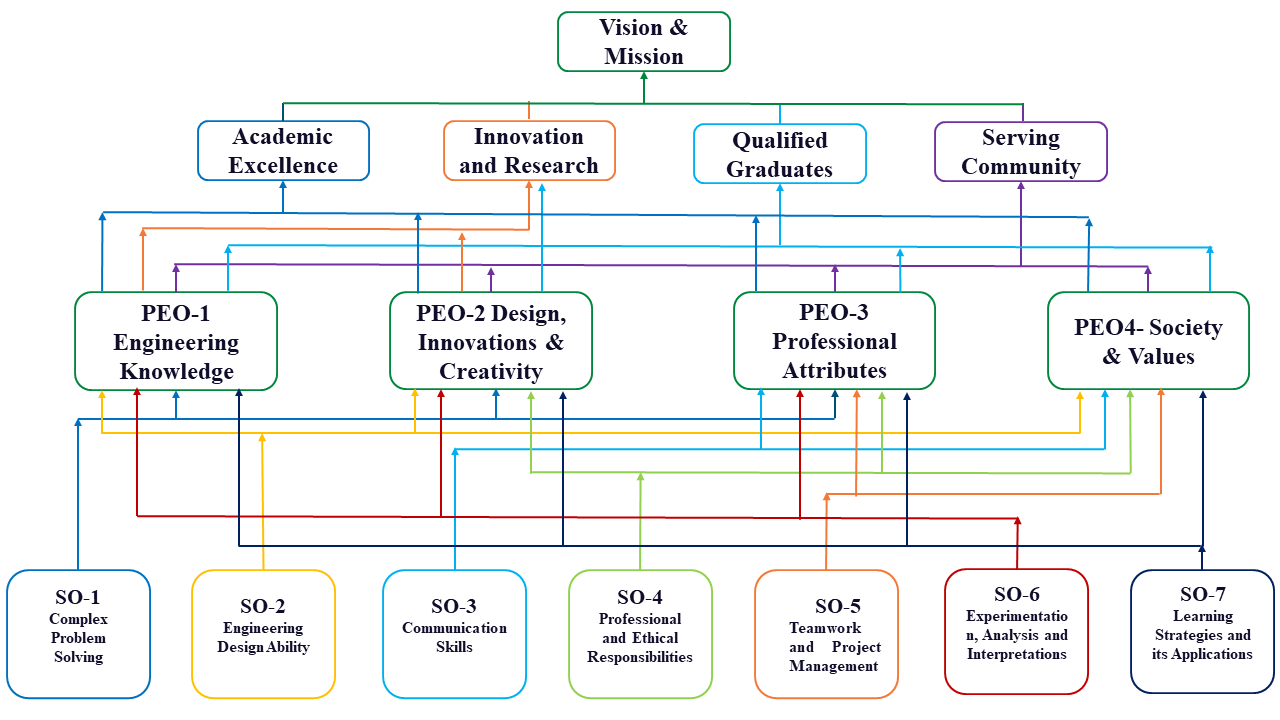Vision
To achieve excellence, recognition, and leadership in education, research, training, and consultancy in Chemical Engineering for fostering the development of the society.
Mission
To bring out highly qualified, innovative, research capability and health, safety, and environment-conscious chemical engineers as well as to furnish an excellent academic and research environment for its staff to engage in research, innovations, consulting, and community services.
| Program Educational Objectives (PEOs) | Domains |
| 1. Utilize knowledge of Chemical Engineering to successfully work in the diversified sector of Chemical Engineering. | Engineering Knowledge |
| 2. Make use of technical expertise, design and innovative skills to accomplish advanced studies and follow research work proficiently. | Innovations and Creativity |
| 3. Take advantage of various attributes achieved through the program to effectively work in the private, corporate or government sector or as an entrepreneur. | Attributes |
| 4. Associate with profession and society and work with safety, ethical and environmental responsibilities. | Values |
Student Outcomes (SOs)
- An ability to identify, formulate, and solve complex engineering problems by applying principles of engineering, science, and mathematics
- An ability to apply engineering design to produce solutions that meet specified needs with consideration of public health, safety, and welfare, as well as global, cultural, social, environmental, and economic factors
- An ability to communicate effectively with a range of audiences (Written and Oral Communication)
- An ability to recognize ethical and professional responsibilities in engineering situations and make informed judgments, which must consider the impact of engineering solutions in global, economic, environmental, and societal contexts
- An ability to function effectively on a team whose members together provide leadership, create a collaborative and inclusive environment, establish goals, plan tasks, and meet objectives
- An ability to develop and conduct appropriate experimentation, analyze and interpret data, and use engineering judgment to draw conclusions.
- An ability to acquire and apply new knowledge as needed, using appropriate learning strategies.
Program Tree



